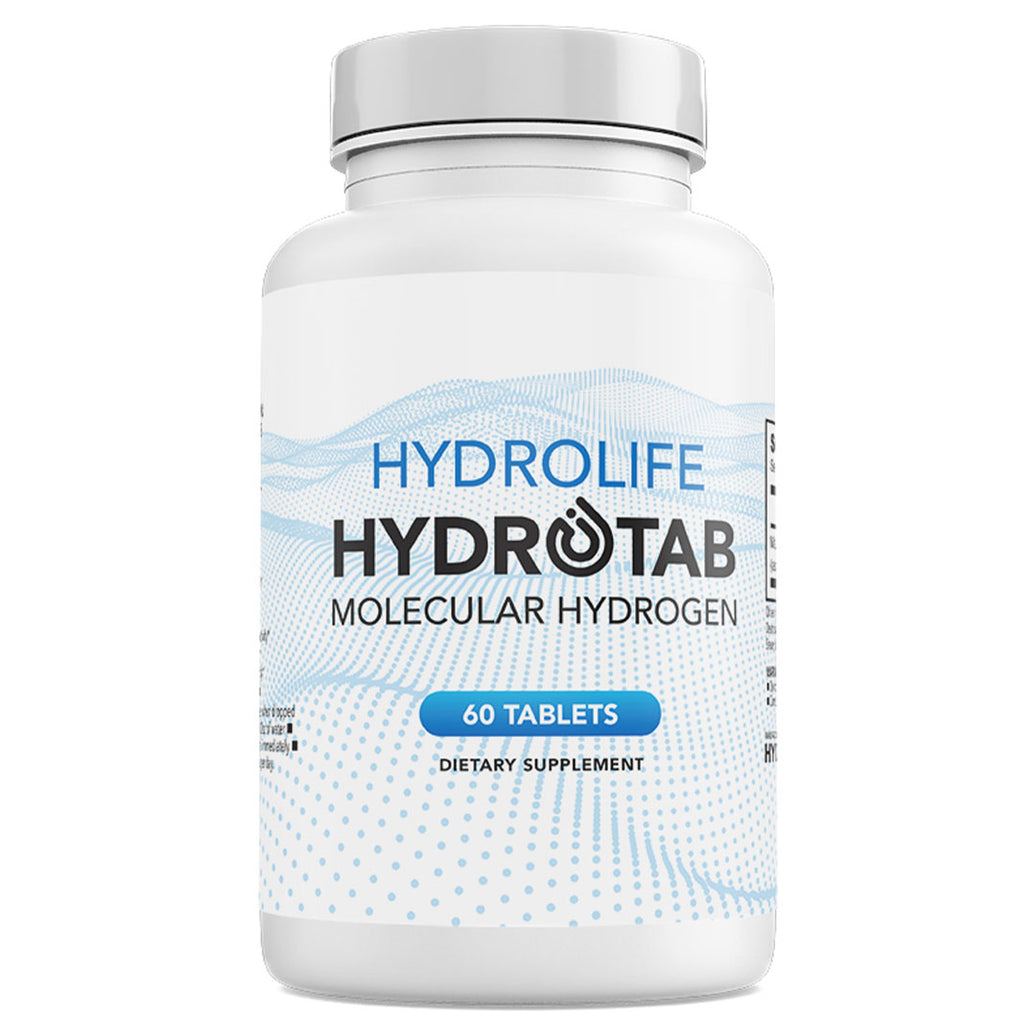Water truly is the foundation of life, as essential as the air we breathe.
But it's not simply about staying hydrated or meeting a basic physiological need.
The quality of water we choose to drink has significant implications for our health and overall wellbeing. When it comes to understanding water with health benefits, the concept of drinking water hardness becomes particularly important.
Many people don't realise that the hardness of drinking water , which refers to its mineral content, plays a crucial role in determining the health benefit you receive from every glass you drink.
With today's advanced water purification technologies, there's a growing trend towards systems that remove all minerals from water in pursuit of ultimate purity. While such demineralised water might be free from contaminants, it also lacks the beneficial minerals that contribute to your health.
This blog will help you understand why moderate hardness in drinking water isn't just acceptable but actually beneficial for your wellbeing.
We'll explore the balance between purification and preserving essential minerals, and examine whether the common assumption that completely demineralised water is always the healthier choice holds up to scientific scrutiny.
By understanding the importance of minerals in water and their role in maintaining your health, you can make more informed decisions about the water you drink every day.
What You Need to Know About Hardness in Drinking Water
When discussing water quality, the term "hardness" often comes up, but what does it actually mean for your daily hydration?
The hardness of drinking water is determined by the levels of dissolved minerals, specifically calcium and magnesium, that water naturally picks up as it flows through soil and rock formations
How We Measure Drinking Water Hardness
Water hardness is typically measured in milligrams per litre (mg/L) or parts per million (ppm). You might also see it expressed in grains per gallon (gpg) in some regions.
The hardness in drinking water is categorised into different levels such as soft, moderately hard, hard, and very hard, based on the concentration of calcium carbonate present.
Comparing Soft and Hard Water Options
Soft Water Characteristics
This type of water contains low concentrations of calcium and magnesium ions. Many people prefer it because it creates a good lather with soap and tends to be gentler on appliances and plumbing systems.
However, it lacks the beneficial minerals that contribute to the health benefits of harder water.
Hard Water Properties
Characterised by higher levels of calcium and magnesium, hard water can sometimes lead to limescale buildup in pipes and appliances. However, these very same minerals are what create the benefits of hard water for your health.
Understanding the distinction between soft and hard water is crucial when you're considering if hard water is safe to drink and evaluating the broader implications of water hardness on health and daily living. While soft water has its advantages in certain applications, hard water brings significant health benefits due to its mineral content.
The Health Impact: Is Hard Water Safe to Drink?

If you've been wondering "is hard water safe to drink?" the answer is not only yes, but hard water can actually provide important health advantages.
The minerals found in hard water, particularly calcium and magnesium are actually essential for human health.
Essential Minerals and Their Effects of Hard Water
Calcium Benefits
Most people know calcium is crucial for bone health, but it's also vital for muscle function, nerve signalling, and blood clotting. While dairy products are well-known calcium sources, the hardness of drinking water can provide a valuable supplementary source of this essential mineral.
Magnesium's Role
This mineral is involved in numerous body processes, including regulating muscle and nerve function, blood sugar levels, and blood pressure. Magnesium also contributes to bone structure development and is required for DNA and RNA synthesis, plus the production of glutathione, an important antioxidant.
Benefits of Hard Water for Your Health
Supporting Bone Health
Regular consumption of hard water provides a source of calcium that can help maintain bone density and support skeletal health as you age.
Cardiovascular Considerations
Some research suggests a correlation between adequate magnesium intake and heart health. The effects of hard water may include cardiovascular benefits due to its magnesium content.
Potential Disease Prevention
Studies have indicated that certain minerals present in hard water may help reduce the risk of some gastrointestinal and cardiovascular conditions.
Addressing Common Concerns About Hard Water
Safety and Health Risks
It's a common misconception that hard water poses health risks. While mineral deposits can affect plumbing and appliances, the health risks from drinking hard water are minimal.
The minerals contributing to hardness in drinking water are actually beneficial.
The Kidney Stone Myth
Many people believe hard water contributes to kidney stones, but most kidney stones form from oxalate compounds, which aren't influenced by water hardness. The calcium in hard water can actually bind with oxalate in your digestive system, potentially reducing stone formation risk.
The evidence clearly shows that moderate hardness in drinking water, due to essential minerals like calcium and magnesium, offers several health advantages. These range from improved bone health to potential cardiovascular benefits, making the effects of hard water generally positive for most people.
The Drawbacks of Completely Mineral-Free Water

In pursuing perfect purity, some water treatment systems like reverse osmosis and distillation remove nearly all minerals from water. While these processes can eliminate unwanted contaminants, they also strip away the beneficial minerals that contribute to the health benefits of water.
Understanding Demineralised Water Systems
Reverse Osmosis and Distillation Processes
These systems are designed to remove impurities, but they also eliminate essential minerals in the process. The result is water that's almost entirely devoid of the natural mineral content that provides health benefits.
The Appeal of "Pure" Water
The primary attraction of these systems is removing potentially harmful contaminants. However, this process also means eliminating the beneficial aspects of drinking water hardness.
Health Considerations of Mineral-Free Water
Missing Essential Minerals
Regular consumption of completely demineralised water may lead to deficiencies in minerals like calcium and magnesium, which are typically obtained through both water and diet.
Potential Health Implications
Long-term consumption of water devoid of essential minerals may increase the risk of mineral deficiency, potentially impacting bone health, cardiovascular function, and overall wellbeing.
Impact on Your Body's Mineral Balance
Drinking water without minerals can disturb your body's natural mineral balance, which may lead to health issues over time.
Why Minerals Matter in Drinking Water

Scientific Evidence on Absorption
Research has shown that minerals in water are often more easily absorbed by the body compared to those from food sources alone. This makes mineral-rich water an important component of a balanced approach to nutrition.
Maintaining Proper Water Structure
Minerals contribute to water's natural structure, affecting its properties and how it interacts with your body. The absence of these minerals can alter water's beneficial characteristics.
While completely demineralised water may be free from contaminants, its lack of essential minerals raises questions about long-term health impacts.
The benefits of hard water, from supporting bodily functions to maintaining proper water structure, highlight why some hardness in drinking water is actually preferable to completely "pure" water.
The debate over water quality often centres on purity, but an equally important aspect is the balance of its mineral content.
Finding the Right Balance: Optimal Hardness in Drinking Water
The discussion around water quality often focuses on purity, but achieving the right balance of mineral content is equally important for maximising water health benefit.
How Minerals Affect Water Properties
Water Structure and Integrity
Minerals like calcium and magnesium help maintain water's structural integrity. This structure affects how water interacts with your body's cells and tissues, potentially enhancing the benefits of hard water.
Enhanced Hydration Properties
The presence of minerals in water can improve its hydrating capabilities. Water with health benefits from mineral content is often more effective at hydrating your body than demineralised alternatives, as these minerals aid in the absorption process.
Balancing Mineral Content for Optimal Health
Improving Hydration and Absorption
The right balance of minerals in water not only enhances taste but also optimises hydration and nutrient absorption in your body, maximising the water health benefit you receive.
Preventing Mineral Deficiencies
By consuming water with moderate hardness for drinking water, you can help prevent deficiencies in essential minerals, contributing to better overall health and wellbeing.
Supporting Electrolyte Balance
Minerals in water contribute to your body's electrolyte balance, which is essential for many functions including nerve signalling and muscle contraction.
Impact on Taste and Overall Quality
Flavour Profile
Water with balanced mineral content often tastes more pleasant and natural compared to demineralised water, which can seem flat or bland. This improved taste can encourage better hydration habits.
Quality Indicators
The presence of minerals often indicates natural filtration processes and contributes to overall water quality, enhancing the effects of hard water on your daily hydration experience.
The importance of balanced mineral content in drinking water extends beyond basic hydration. It's about providing your body with essential minerals in an easily absorbable form, enhancing hydration effectiveness, and maintaining healthy electrolyte balance.
Practical Guidelines for Optimal Water Consumption
Understanding the importance of mineral content in water naturally leads to practical questions about how to ensure your drinking water provides optimal health benefits. Here are evidence-based guidelines for daily water intake and choosing appropriate water treatment systems.
Daily Water Intake Recommendations
General Guidelines
While individual needs vary, health experts generally recommend drinking at least 8-10 glasses of water per day. Adjust this based on factors like climate, physical activity levels, and individual health conditions.
Considering Mineral Content
When planning your daily water intake, consider the hardness of drinking water you're consuming. If your water is completely demineralised, you may need to find other sources to meet your mineral requirements.
Selecting Appropriate Water Filtration Systems
Preserving Essential Minerals
Choose water filtration systems that reduce contaminants while preserving the minerals that provide water with health benefits. Systems like carbon filters or certain ion exchange units can be effective options.
Avoiding Over-Purification
Be cautious with systems like reverse osmosis or distillation that might eliminate beneficial minerals along with contaminants. If using these systems, consider remineralising the water or supplementing your diet with additional mineral sources.
Testing and Adjusting Your Home Water Supply
Water Hardness Testing
Home testing kits are available to measure the hardness for drinking water in your supply. This information can help you understand whether you need to adjust the mineral content.
Making Adjustments
If your water is excessively hard, a water softener can help reduce excess minerals. Conversely, if your water is too soft, consider adding a remineralisation filter or using mineral supplements.
Balancing Health Needs with Personal Preferences
Individual Considerations
The ideal mineral balance can vary based on personal taste preferences and specific health needs. Experiment with different levels of drinking water hardness to find what works best for your situation.
The key to optimal water consumption lies in balancing purity with appropriate mineral content. By choosing suitable filtration systems, regularly testing water hardness, and adjusting mineral content as needed, you can ensure your water is both safe and beneficial for your health.
Research Evidence: Benefits of Hard Water
The advantages of moderately hard water aren't just theoretical but are supported by various studies and research findings. Let's examine key scientific evidence that demonstrates the health benefits associated with drinking water that contains beneficial minerals.
Cardiovascular Health Studies
Several epidemiological studies have found an inverse relationship between the hardness of drinking water and cardiovascular disease rates. Areas with naturally harder water have shown lower incidences of heart disease, suggesting protective effects of hard water minerals like calcium and magnesium.
Bone and Dental Health Research
Studies indicate that higher levels of calcium in drinking water contribute to better bone density and reduced risk of osteoporosis. Additionally, the effects of hard water have been associated with improved dental health, particularly in reducing dental caries occurrence.
Comparative Health Outcome Analysis
Hard Water vs. Demineralised Water
Research comparing regions with different levels of drinking water hardness has shown that populations consuming moderately hard water generally experience better overall health outcomes. In contrast, areas with demineralised or very soft water often report higher rates of certain health issues, including cardiovascular diseases and mineral deficiencies.
Impact of Remineralisation
Studies on communities that switched from demineralised to remineralised water supplies show improvements in various health markers, further supporting the importance of minerals in providing water with health benefits.
The body of research on water hardness presents compelling evidence for the health advantages of moderately hard water. These studies not only reinforce the importance of minerals in our drinking water but also provide valuable insights for making informed decisions about water consumption.
Understanding the Benefits of Hard Water for Your Health
As we conclude our exploration of drinking water hardness and its impact on health, it's clear that the relationship between water quality and wellbeing involves more than simply pursuing the purest water possible. Our examination of various aspects of water hardness reveals a more nuanced understanding of how minerals in water, particularly calcium and magnesium, play vital roles in our overall health.
Key Takeaways About Water with Health Benefits
Balanced Mineral Content Matters
The most important insight is that balanced mineral content in drinking water is crucial. While extremely hard water can present some challenges, completely demineralised water lacks the essential minerals that provide significant water health benefit.
Health Advantages of Moderate Hardness
The effects of hard water include contributions to bone health, cardiovascular wellness, and potentially protective effects against certain health conditions.
Making Informed Water Choices
Armed with this knowledge about the benefits of hard water, you can make more informed decisions about your water sources, whether selecting appropriate filtration systems or understanding the mineral content of your local water supply.
Public Health Considerations
This information is also valuable for public health policies, emphasising the need to consider mineral content in water treatment and distribution strategies rather than focusing solely on removing all dissolved substances.
Moving Forward with Water Hardness Knowledge
The conversation around water quality needs to evolve from a singular focus on purity to a more balanced perspective that recognises the health benefits of appropriate hardness in drinking water.
When we understand that moderate mineral content provides water with health benefits, we can ensure our hydration choices support both immediate thirst-quenching needs and long-term health goals.
By recognising that the question "is hard water safe to drink?" has a resoundingly positive answer, and understanding that the effects of hard water are generally beneficial, we can make choices that truly nourish our bodies while keeping us properly hydrated.
The evidence clearly supports the value of maintaining some level of drinking water hardness rather than pursuing complete demineralisation.
This balanced approach to water consumption contributes not just to hydration but to overall health and vitality.























